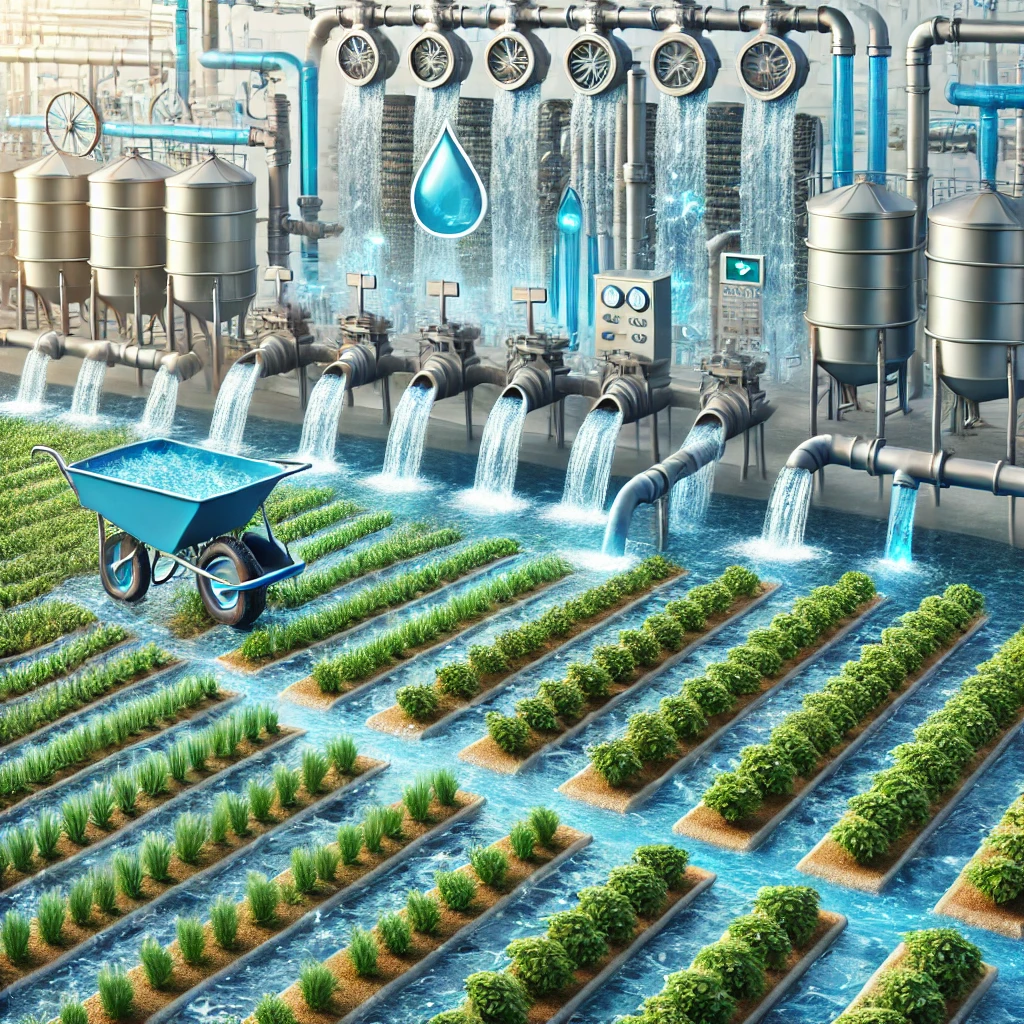Introduction
Imagine a world where every drop of water is used efficiently, recycled, and reused to its maximum potential. As climate change and population growth put increasing pressure on our water resources, the need for sustainable water management solutions has never been more critical. Enter water recycling systems—a revolutionary startup idea that promises to transform how we think about and use water. This startup concept isn’t just about technology; it’s about creating a sustainable future, ensuring water security, and tapping into a lucrative market poised for significant growth.
Market Analysis
The global water recycling and reuse market is expanding rapidly, driven by increasing water scarcity, stringent environmental regulations, and growing awareness of sustainable practices. According to market research, the water recycling market is expected to reach $32.5 billion by 2026, growing at a CAGR of 12.6%. Key regions driving this growth include North America, Europe, and Asia-Pacific, with significant investments in infrastructure and technology.
Trends such as the adoption of decentralized water treatment systems, advancements in membrane technologies, and the integration of IoT and AI for smart water management are shaping the market. Additionally, industries such as agriculture, manufacturing, and municipalities are increasingly looking to water recycling to reduce their environmental footprint and operational costs.
Unique Value Proposition
What sets this water recycling startup apart is its holistic approach to water management. Unlike traditional systems that focus solely on treatment, this startup offers a comprehensive solution encompassing recycling, real-time monitoring, and predictive maintenance. Key differentiators include:
- Advanced Membrane Filtration: Utilizing cutting-edge membrane technology to ensure high-efficiency water purification.
- Smart Integration: Incorporating IoT and AI to monitor water quality and system performance in real-time, predicting maintenance needs before issues arise.
- Scalability: Offering modular systems that can be scaled from small residential units to large industrial complexes.
- Sustainability: Emphasizing low-energy consumption and the use of eco-friendly materials to minimize environmental impact.
Business Model
The business model for this startup revolves around multiple revenue streams to ensure profitability and growth:
- Direct Sales: Selling water recycling units to residential, commercial, and industrial clients.
- Subscription Services: Offering maintenance, monitoring, and software updates on a subscription basis.
- Licensing: Licensing technology to other water treatment companies.
- Consulting: Providing expert consulting services for custom water recycling solutions.
Target Audience
The primary target audience for this water recycling startup includes:
- Residential Customers: Homeowners and apartment complexes looking to reduce water bills and adopt sustainable practices.
- Commercial Entities: Businesses such as hotels, office buildings, and shopping centers aiming to lower water usage and enhance their green credentials.
- Industrial Clients: Factories and processing plants needing efficient water management to comply with regulations and reduce costs.
- Municipalities: Local governments seeking sustainable water solutions for urban areas.
Development and Execution
Developing and executing this startup idea involves several critical steps:
- Research and Development: Invest in R&D to refine membrane technology and develop the IoT/AI integration for smart monitoring.
- Prototype Development: Create prototypes for residential, commercial, and industrial units.
- Pilot Programs: Launch pilot programs in key markets to test and refine the systems.
- Manufacturing Setup: Establish manufacturing facilities or partner with existing manufacturers to produce the units.
- Market Launch: Implement a comprehensive marketing strategy, including digital marketing, trade shows, and partnerships with environmental organizations.
- Scaling Operations: Gradually scale operations, expanding the product line and entering new markets.
Funding and Investment
Securing funding is crucial for the development and growth of this startup. Potential funding sources include:
- Venture Capital: Attracting VC firms specializing in clean technology and sustainability.
- Government Grants: Applying for grants and subsidies focused on water conservation and sustainable technology.
- Crowdfunding: Launching a crowdfunding campaign to raise awareness and funds from environmentally-conscious consumers.
- Strategic Partnerships: Forming alliances with large corporations and water utility companies for joint ventures and investment.
Financial projections indicate a break-even point within the first three years, with significant profitability as the market adoption increases.
Challenges and Risks
Every startup faces challenges and risks, and this water recycling venture is no exception:
- Regulatory Hurdles: Navigating complex regulatory environments in different regions.
- High Initial Costs: Managing the high costs associated with R&D and manufacturing setup.
- Market Acceptance: Overcoming skepticism and resistance to new technology from potential customers.
- Maintenance and Support: Ensuring reliable and timely maintenance services to prevent system downtime.
Mitigation strategies include building a strong regulatory team, securing sufficient funding, running extensive pilot programs to prove efficacy, and developing a robust customer support infrastructure.
Success Stories and Case Studies
Several startups and companies have successfully ventured into the water recycling market, providing valuable insights and inspiration:
- Aquacycl: A startup that developed a microbial fuel cell system to treat industrial wastewater, securing significant funding and partnerships.
- Ecosoft: Known for their advanced filtration technology, Ecosoft has successfully implemented water recycling solutions in residential and commercial settings.
- Hydraloop: This company offers compact, scalable water recycling units for residential use and has garnered international recognition and awards.
These success stories underscore the potential and viability of innovative water recycling solutions in today’s market.
Call-to-Action
Water recycling systems represent a transformative opportunity to address one of the most pressing environmental challenges of our time. By investing in this startup idea, you are not only tapping into a lucrative market but also contributing to a sustainable future. Join us in revolutionizing water management—share this idea, engage with us, and let’s make a difference together.
Mobile Optimization
Ensuring that this content is mobile-responsive and optimized for fast loading is essential. The blog post should be easily accessible on various devices, with clear formatting, quick load times, and intuitive navigation to enhance the reader’s experience.

